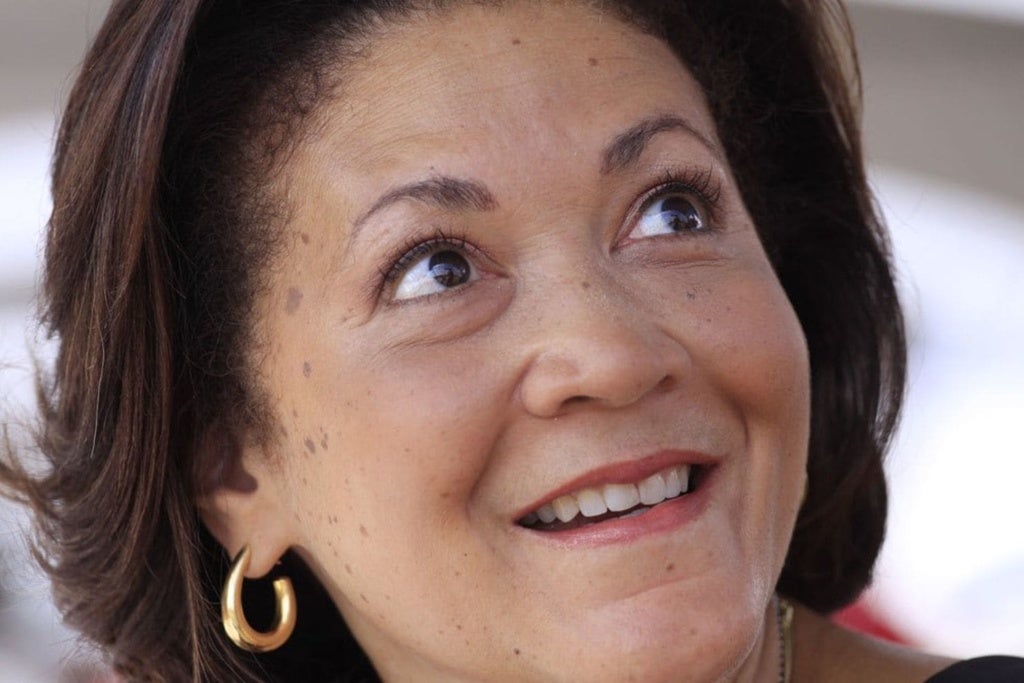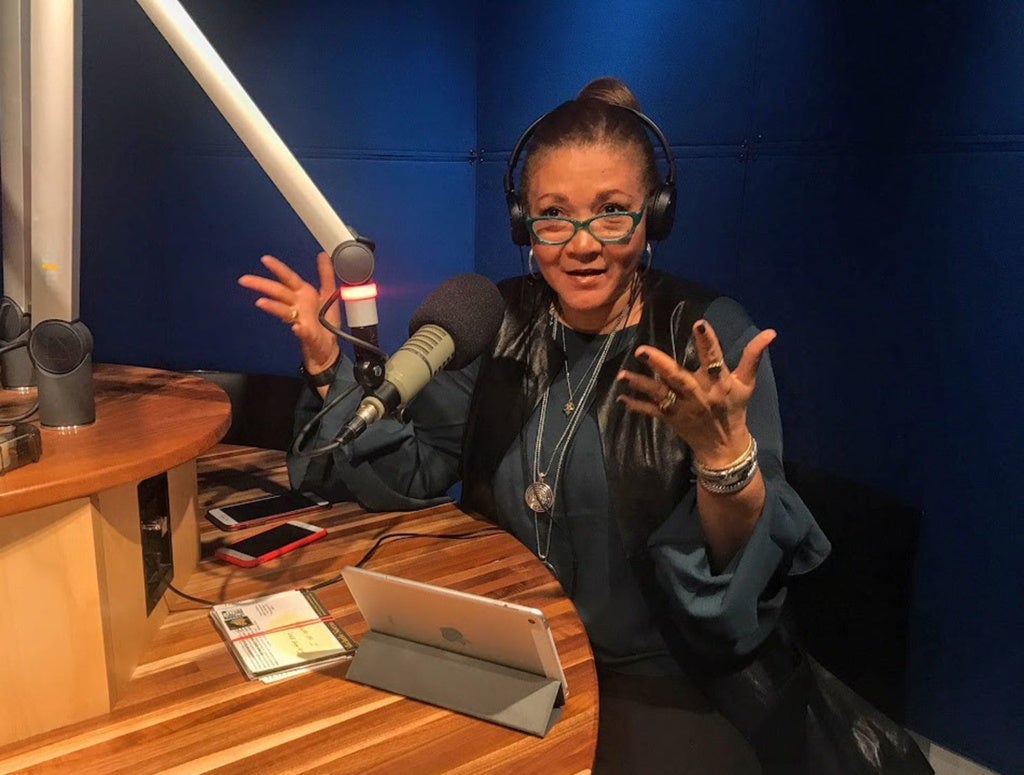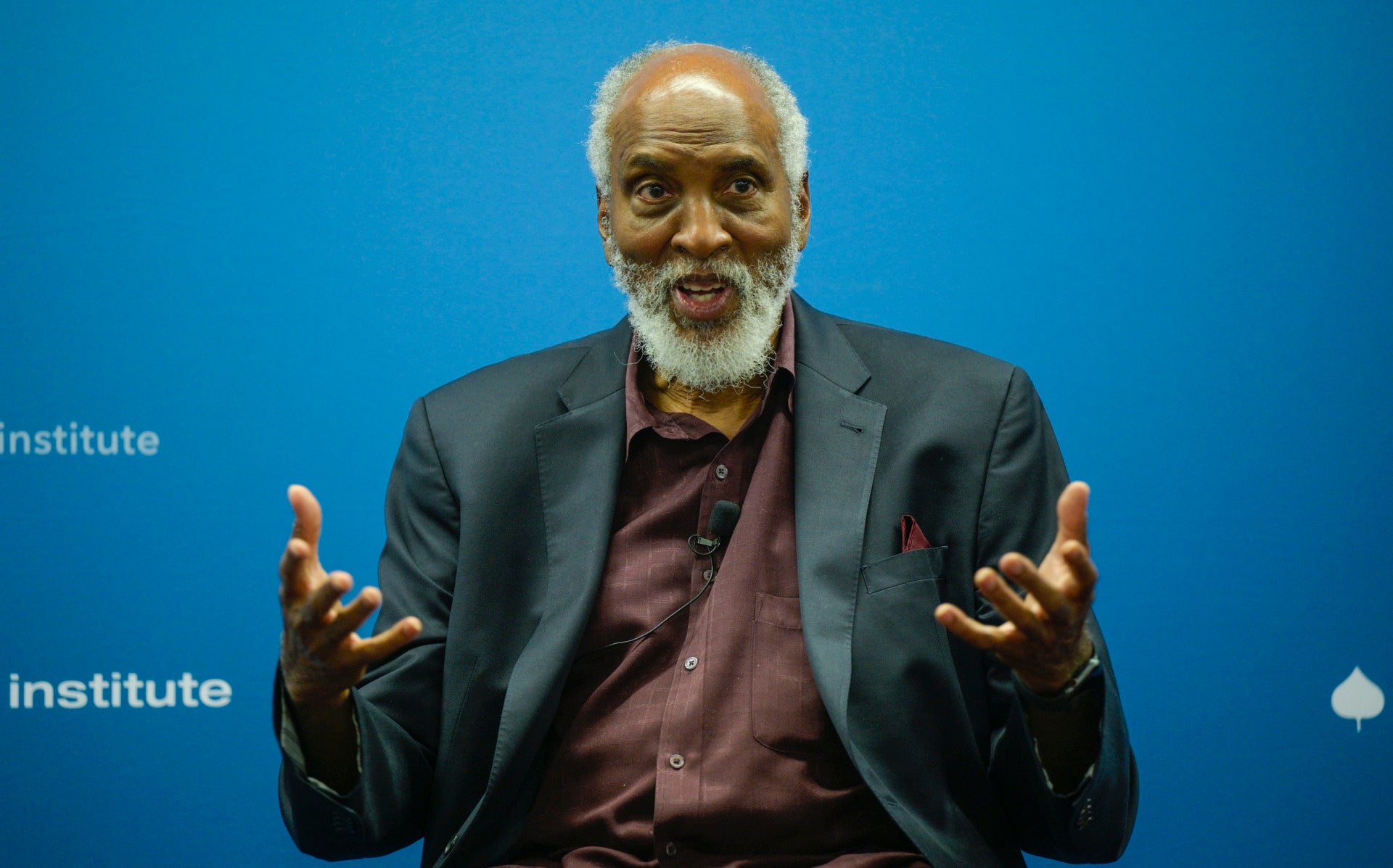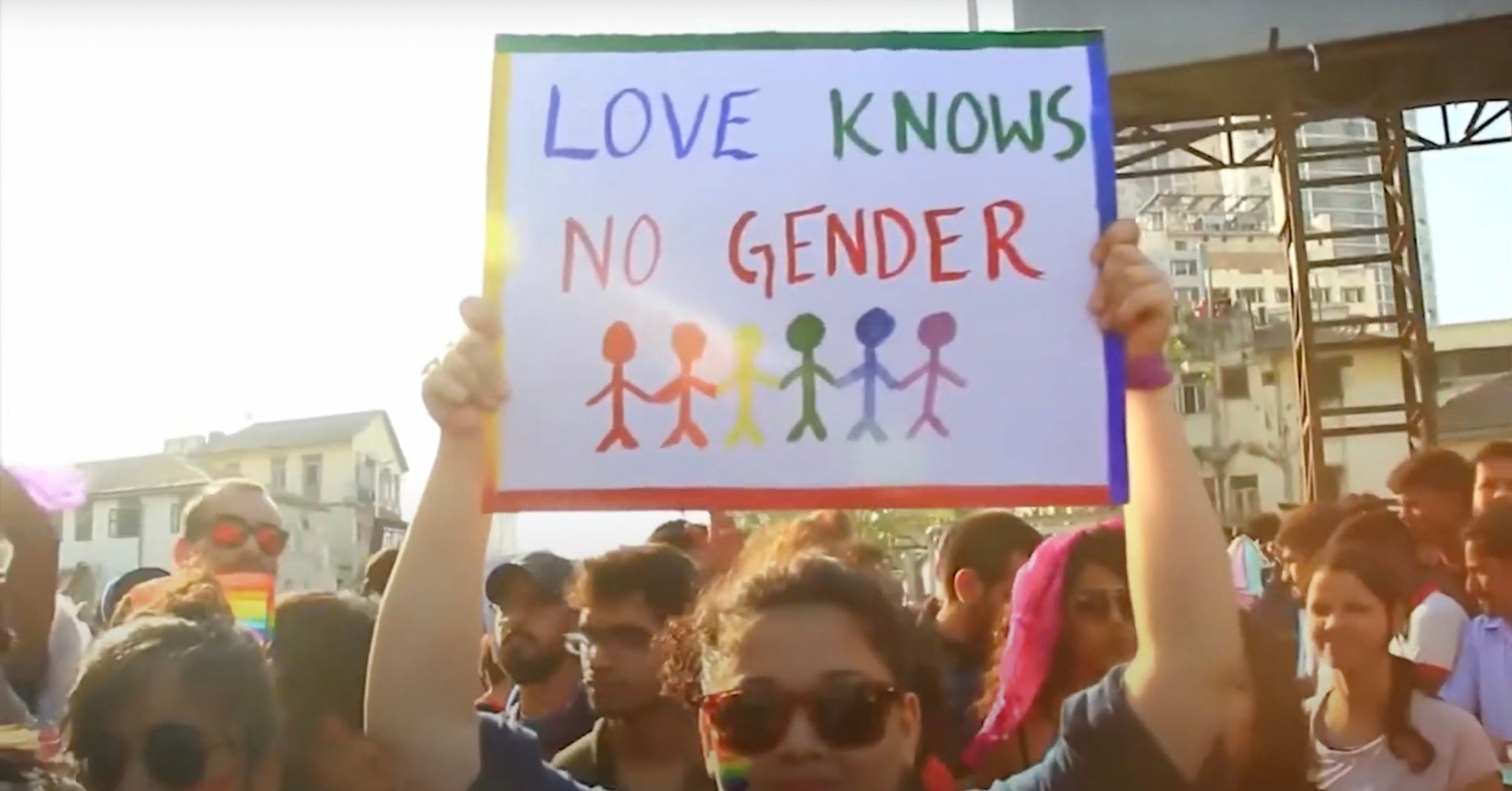
Veteran journalist Michele Norris, former co-host of NPR’s “All Things Considered” and creator of “The Race Card Project.” (Jay Paul/The Washington Post)
“Race is a bright and throbbing vein in America’s body politic.”
When her book “The Grace of Silence: A Family Memoir” came out, veteran journalist Michele Norris didn’t think anyone would want to deal with race, a central theme of her 2010 memoir. She discovered that the opposite was true. “I built this on a mistake,” Norris told me during the latest episode of “Cape Up.” “I built this on the idea that no one wanted to talk about race, and I was wrong.”
The “this” Norris is referring to is “The Race Card Project,” the brain child and labor of love of the former reporter for The Post and former co-host of NPR’s “All Things Considered,” the first African American woman in that job. Everywhere she went on that book tour, she said, she left postcards that “ask[ed] people to send us their six-word stories [on race.]” The response surprised Norris. Not only the number of cards coming her way in the mail and via social media, but also who was responding.

Michele Norris speaks with The Post’s Jonathan Capehart during an interview for the “Cape Up” podcast on Feb. 21. (Carol Alderman/The Washington Post)
“From the beginning, the majority of the cards came from white Americans. Which, again, another surprise for me,” Norris recounted. “I created this thinking that most of these cards would come from people of color, because most conversations about race are by, for and about people of color. I was wrong again.” She added, “I have never been engaged in a conversation or any kind of media project around race that had that degree of buy-in from white Americans.”
Some of the six-word stories we discussed were “My name is Jamal, I’m white,” “Grandma sent $100 when we broke up,” “With kids, dad; alone, I’m thug” and “I’m not basically white, I’m suburban.” If you go to theracecardproject.com you will see that some of the stories are accompanied by longer, thoughtful explanations of their six words. But many are simply those six words, and they make you think.
[ A tale of two weeks in politics, race and leadership in America. ]
“The ambiguity in the cards, I think, is something wonderful,” noted Norris. “And that’s part of race also. You understand, interpret, absorb, define race based on your own life experience.” Also, Norris explained, “What it does is represent people telling their truths, and their truth might not be your truth.”
Listen to the podcast to hear Norris and me talk about “Black Panther” and what it represents, and how her love of board games led to her marry two–time “Cape Up” guest Broderick Johnson, former Cabinet secretary to President Barack Obama. But the bulk of our conversation is specifically about race and those profound six-word stories.
“The most productive conversations around race are probably the ones you never hear,” Norris pointed out. “We want to help people understand the conversation that’s percolating in America in private spaces.” And by doing so, she said, “You will come away with a better understanding of America’s cultural DNA.”
“Cape Up” is Jonathan’s weekly podcast talking to key figures behind the news and our culture. Subscribe on Apple Podcasts, Stitcher and anywhere else you listen to podcasts.

